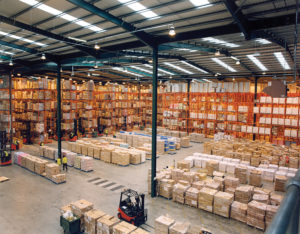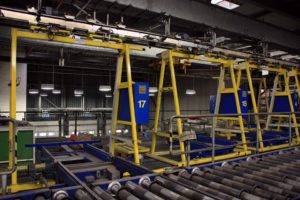Enterprise Resource Planning (ERP) systems have changed the game for steel companies worldwide. These systems integrate various aspects of the business’s operations, including manufacturing, sales, marketing, finance, and human resources. In the last few years, ERP systems have become even more important and even more powerful, and it’s largely down to the improved technologies that these systems have at their disposal.
These are some of the technologies and trends currently shaping ERP, as well as the ones set to define the future of these systems.
Machine Learning (ML)
Machine learning (ML) has been around for a long time. It works by processing vast amounts of data and looking for trends. The more data it has, the better it becomes at understanding the concept in question, allowing it to make accurate predictions with regard to the business, its products, and its customers.
To understand how ML works, think about one of the most common examples: the “also bought” recommendations that you encounter on e-commerce platforms like Amazon.
Amazon tracks every single order made through its platform and then compares and contrasts. It crunches all of this data and judges how likely a customer is to buy Product B after they buy Product A. It can then further refine these details by learning that people who eventually buy Product X usually spend some time viewing Product A and B. That way, it knows that when someone views A and B, it can show them X.
It’s a simplistic way of looking at what is actually a very complicated algorithm, but it gives you an idea of how these systems work.
ML in ERP
We know how ML works, but how does it work within the context of an ERP system?
Think about a metal or steel business, or any other business in the steel and metal industry, as a giant collection of data. Everything is data, from the metrics that govern sales and marketing to the processes behind acquisition and production. Every datum is part of a vast network that tracks all aspects of the company.
Taking all of this data into account, ERP systems can use ML to accurately predict when there is likely to be an increase in orders (based on historical data, sales increases, and general industry-wide demand) and when machines need to be maintained, repaired, and replaced (based on their current state and usage, as well as data from other machines).
All of this can aid in the decision-making process and ensure the business is acting intuitively and logically and not based purely on assumptions.
Artificial Intelligence (AI)
Artificial intelligence (AI) is a broader concept that includes ML. If ML is the brain, AI is the entire body. It includes the many applications that put all of that data to use. It’s the algorithms that crunch that Amazon data and feed product recommendations.
AI in ERP
AI is the beating heart of ERP systems. It’s also one of the most exciting aspects of these programs, as improved data processing and storage have given AI access to larger datasets and more complex algorithms, allowing it to make sense of all that data.
In ERP systems, AI delivers a more personalized experience for customers. It analyses what they buy and when buy it, and can thus make recommendations based on their activity.
It pours through previous orders from suppliers to look for discrepancies, whether that means finding overpayments, correcting invoicing mistakes, or looking for costs that have increased beyond the industry average.
Automation relies on complex AI programs, which in turn rely on ML. Automation doesn’t mean that robots are taking over and governing every aspect of the company’s operations. In ERP systems within the steel and metal sector, it often means that AI is assigned simple data entry and quality control tasks, ones that can be performed by humans slowly and with a high margin for error. By giving these jobs to AI, there are fewer costly mistakes, and the programs are much faster and more efficient.
AI models have been in the news a lot lately, and we’ll no doubt be seeing a lot more of them in the near future.
The Internet of Things (IoT)
The Internet of Things (IoT), as the name suggests, is a world of interconnectivity. Everything connects to the same system, adding and drawing data from the same database.
That’s essentially what ERP systems are—multiple integrations across the whole company that blend together to create a harmonious whole, a single point of access and understanding. The difference is that the IoT goes much deeper than simply connecting the company’s main departments and processes.
The IoT and ERP
As noted above, the more data points that exist within a relationship, the more information it has, and the clearer the bigger picture will become. Take the factory floor in the steel and metal industry, for example. Workers can wear devices that track their activities as they move around the factory and warehouse. It can monitor their heart rate, check for signs of danger, and then compare all of this to the number of workplace accidents and incidents, guiding the company toward safer manufacturing processes.
IoT also plays a key role in inventory management systems, which are an important part of all ERP software. These devices can track the humidity and temperature of sensitive or perishable items, with the necessary changes then made to ensure the product stays stable for longer.
How AI, Machine Learning, and IoT are Shaping the Future of ERP Systems
It’s unlikely that we’ll see another major technological invention change the way that ERP systems work in the next few years. What’s more likely is that there will be changes in how AI, ML, and IoT work, and these will lead to more accurate predictions, improved models, and IoT devices seen everywhere from the helmets of warehouse workers to the shirts of production staff and even the shelves of the warehouse.
Whatever happens, ERP systems are set to remain one of the most important tools in the arsenal of any steel business.




